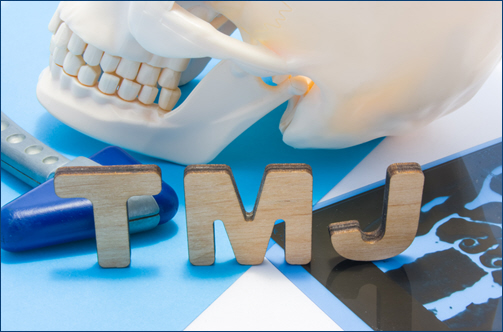How TMJ Disorders Affect Your Daily Life and What You Can Do About It
The temporomandibular joint (TMJ) is a complex hinge connecting your jawbone to your skull. It plays a crucial role in everyday activities such as speaking, chewing, and yawning. TMJ disorders can cause pain and discomfort in this joint, affecting your quality of life. These disorders are often accompanied by symptoms such as jaw pain, headaches, difficulty chewing, and clicking or popping sounds when opening or closing the mouth.
 Impact on Daily Life
Impact on Daily Life
- Pain and Discomfort: TMJ disorders can lead to chronic pain in the jaw, face, and neck, making it difficult to perform basic activities such as eating and speaking. The persistent discomfort can affect concentration and productivity, leading to a decreased quality of life.
- Dietary Restrictions: Individuals with TMJ disorders may find it challenging to chew certain foods, particularly those that are hard or chewy. This can lead to dietary restrictions, forcing people to opt for softer foods that do not exacerbate jaw pain. Over time, these restrictions can impact nutrition and overall health.
- Sleep Disturbances: TMJ pain can also affect sleep quality. Discomfort in the jaw and surrounding muscles may make it difficult to find a comfortable sleeping position, leading to restless nights and fatigue during the day. Poor sleep can exacerbate stress and contribute to a cycle of pain and discomfort.
Managing TMJ Symptoms
- Home Remedies: There are several home remedies that can help alleviate TMJ symptoms. Applying a warm compress to the affected area can reduce pain and relax the muscles. Additionally, practicing gentle jaw exercises and stretching can improve jaw mobility and relieve tension.
- Stress Management: Stress is a common trigger for TMJ disorders, as it can lead to jaw clenching and teeth grinding. Practicing stress-reduction techniques such as meditation, deep breathing exercises, and yoga can help manage stress levels and reduce TMJ symptoms.
- Professional Treatments: If home remedies are not effective, seeking professional treatment is recommended. Dentists and healthcare providers may suggest using a custom mouthguard to prevent teeth grinding at night. Physical therapy can also help by improving jaw function and reducing muscle tension. Contact Kiessling Family Dentistry for more information.
- Medication: Over-the-counter pain relievers such as ibuprofen or acetaminophen can help manage TMJ pain and inflammation. In some cases, your healthcare provider may prescribe muscle relaxants or anti-inflammatory medications to provide relief.
Conclusion
TMJ disorders can significantly impact daily life by causing pain, dietary restrictions, and sleep disturbances. However, with the right approach, it is possible to manage symptoms and improve quality of life. By incorporating home remedies, stress management techniques, and professional treatments, individuals with TMJ can find relief and regain control over their daily activities. If symptoms persist or worsen, it is essential to consult with a healthcare provider to develop a personalized treatment plan.

